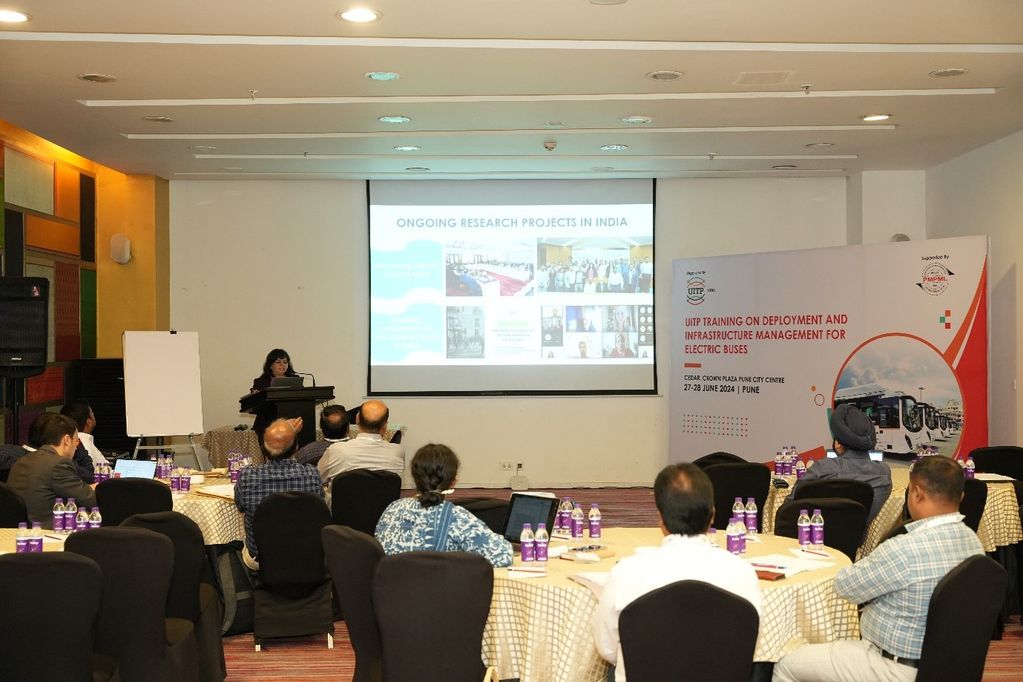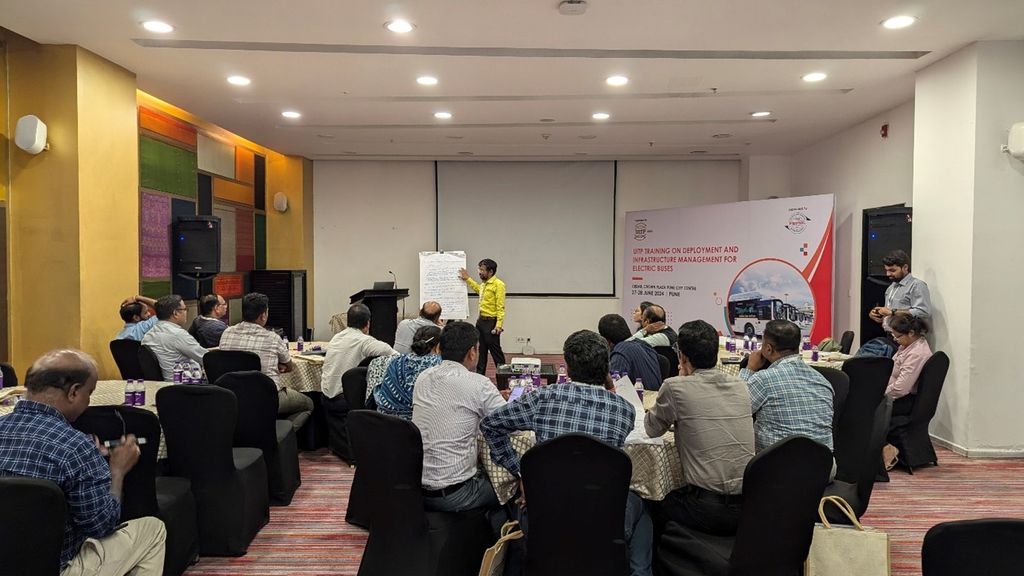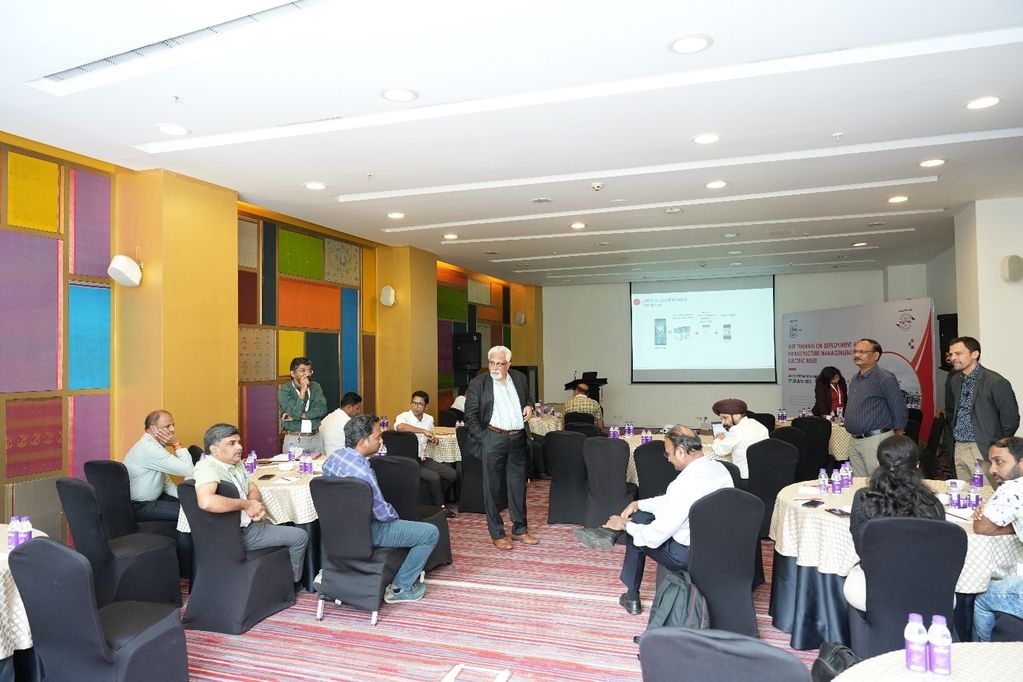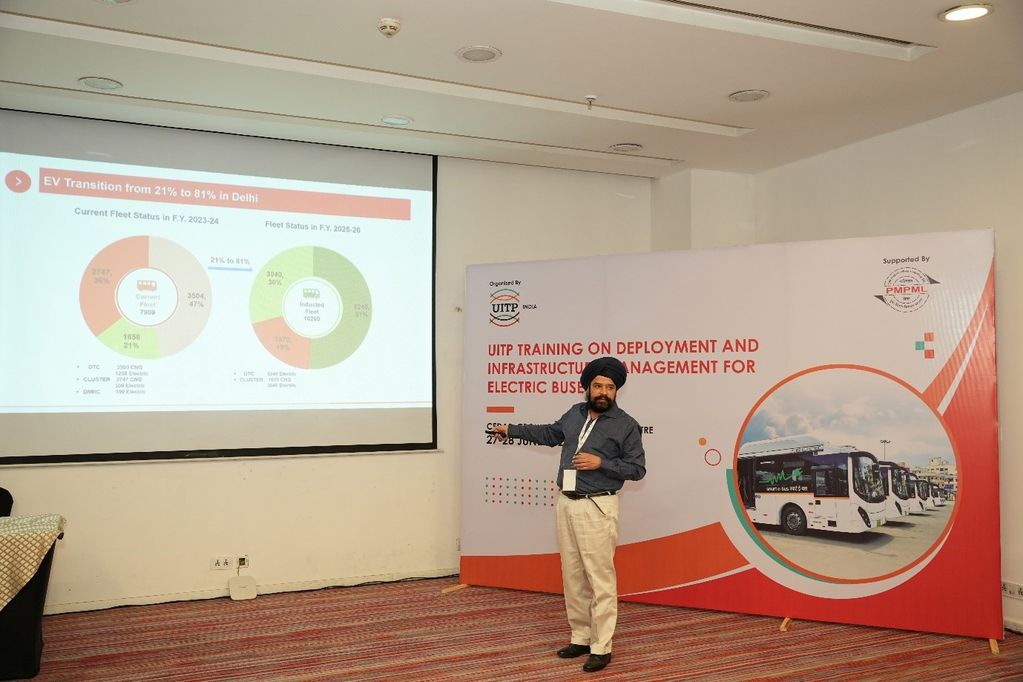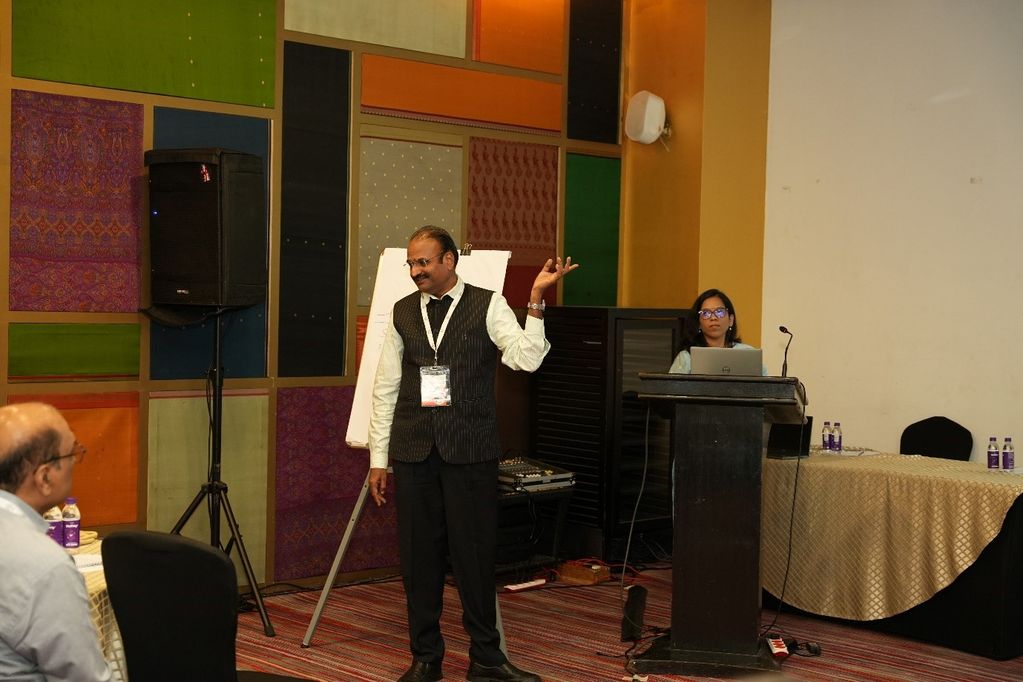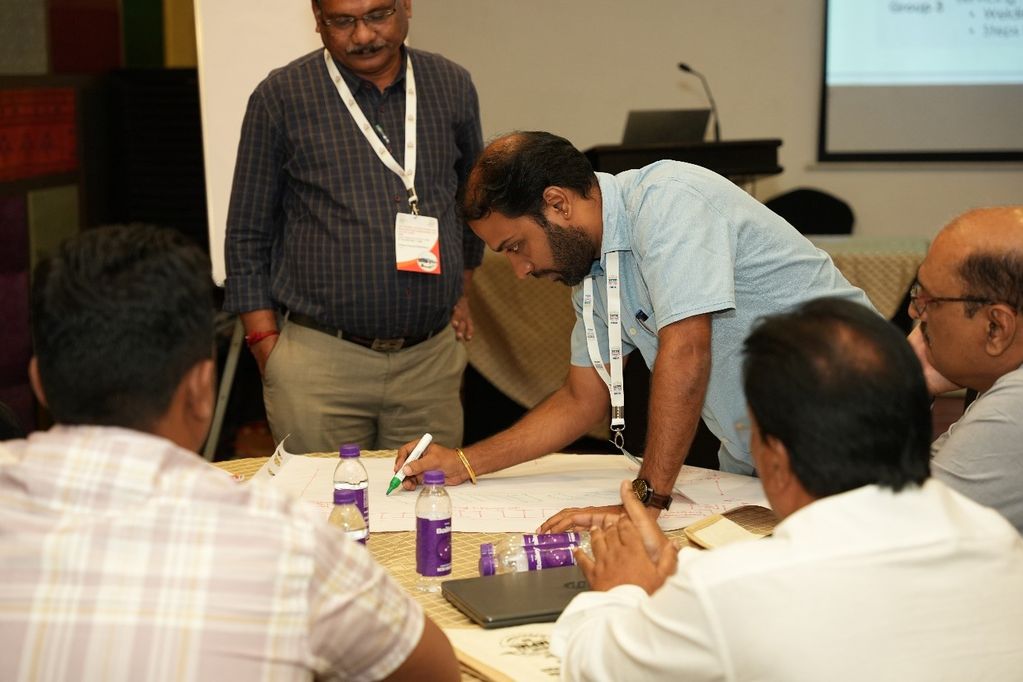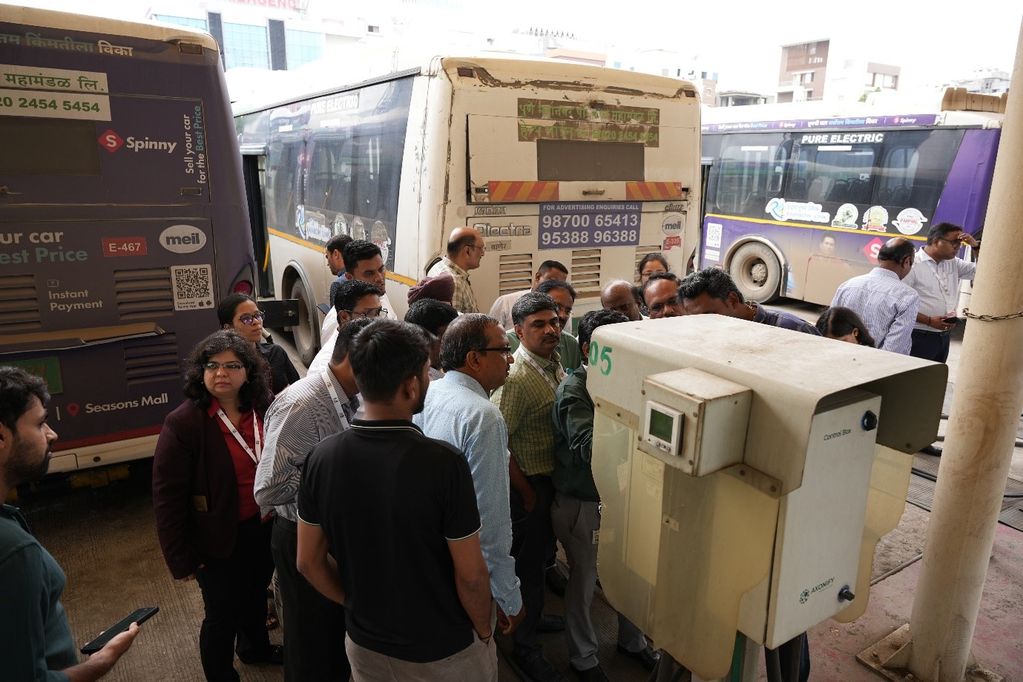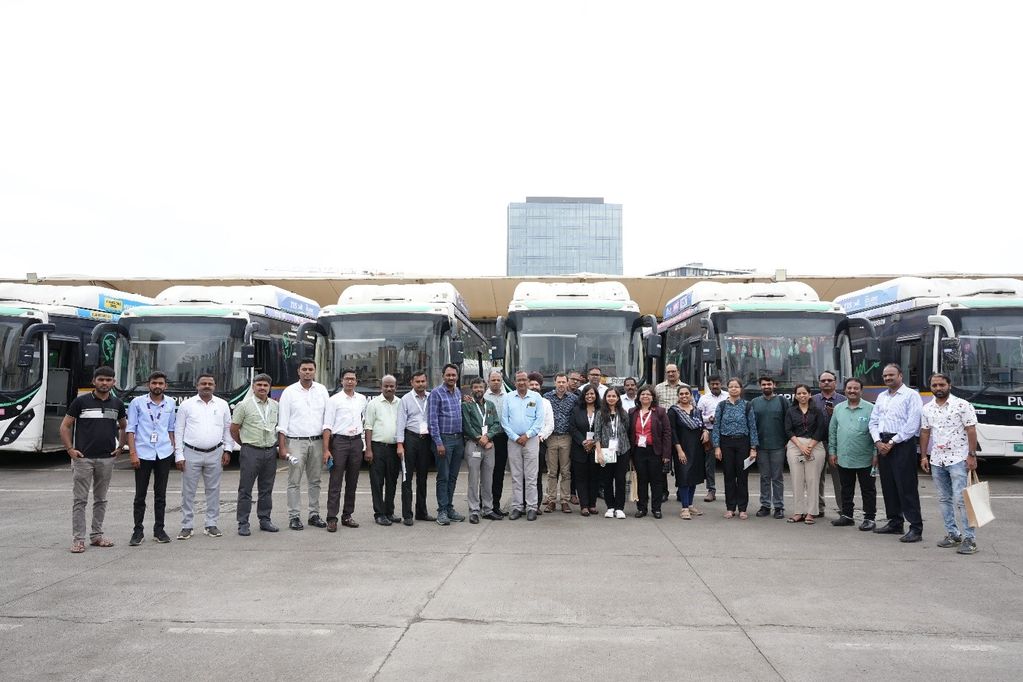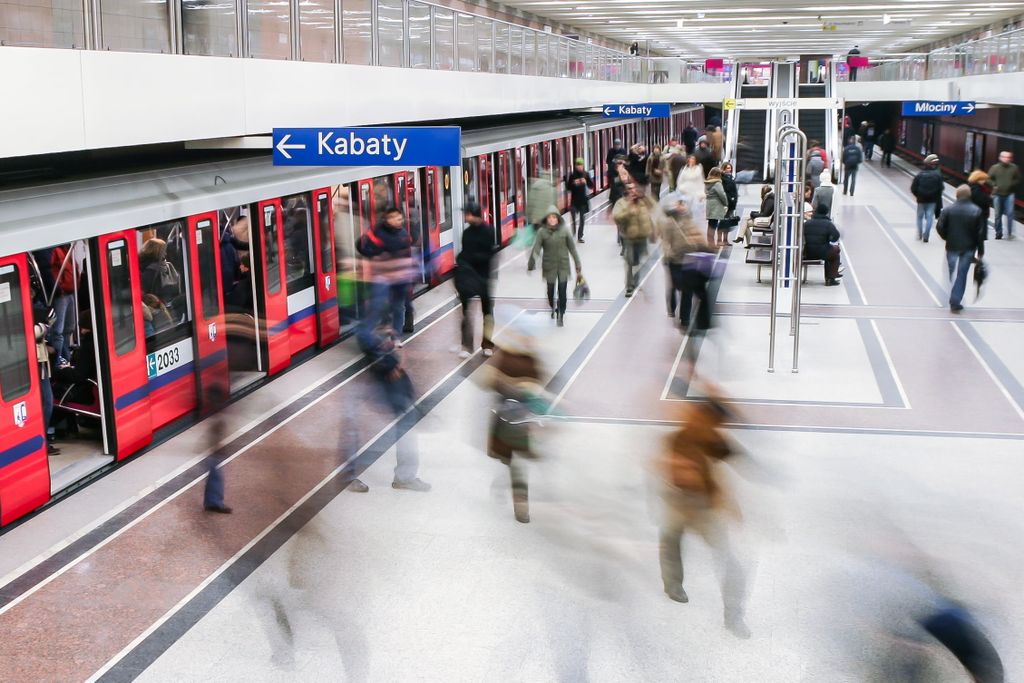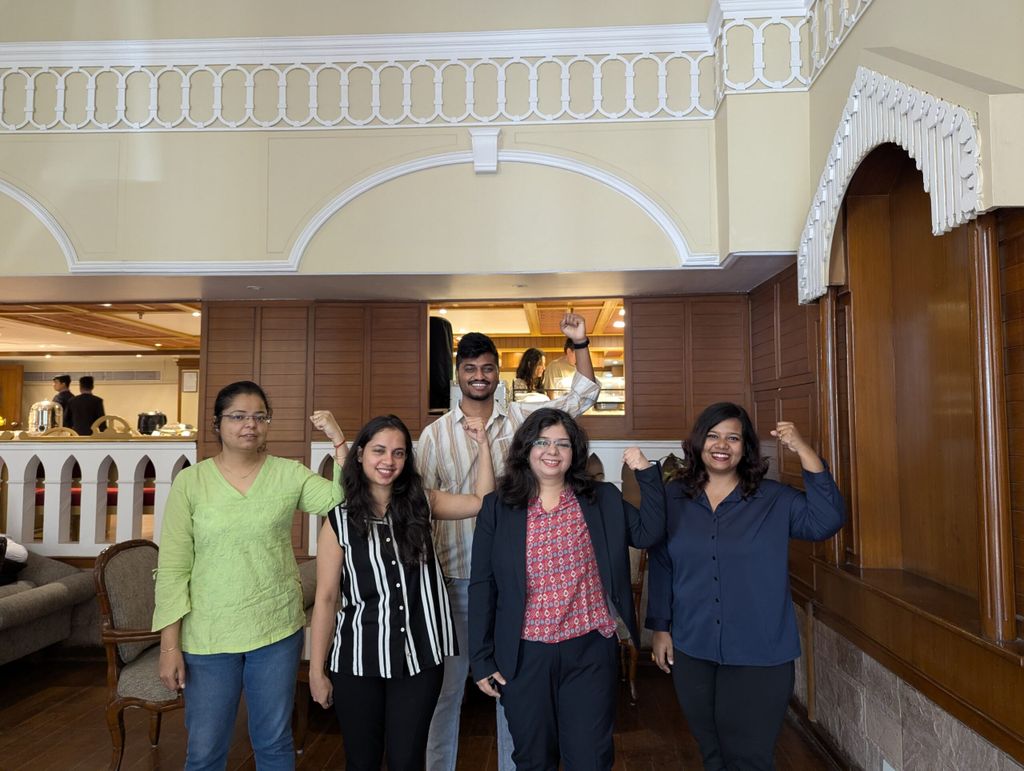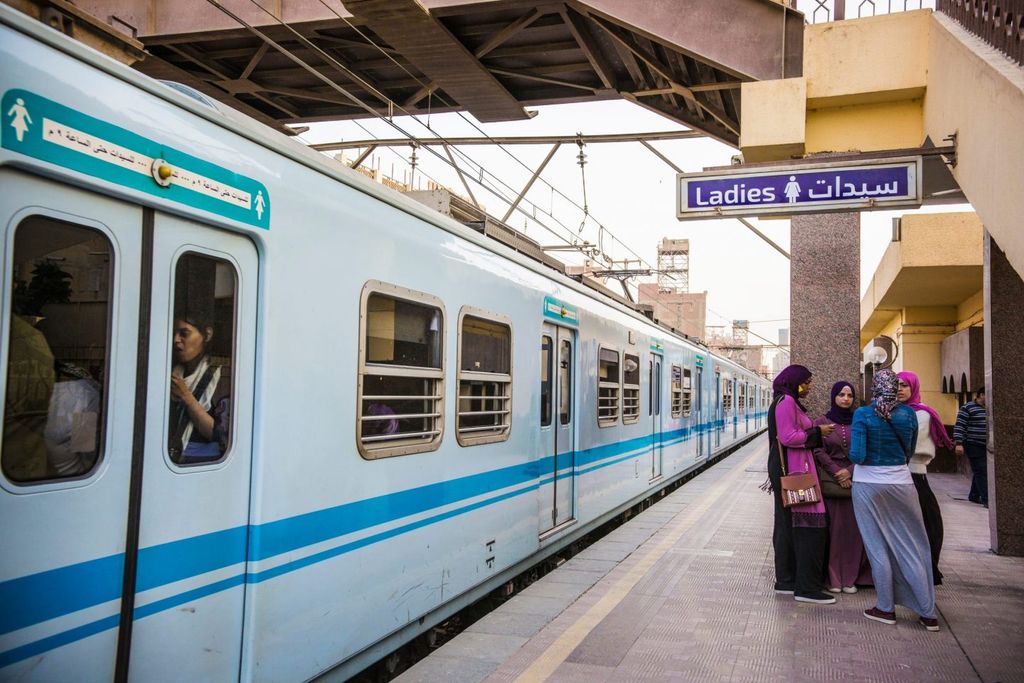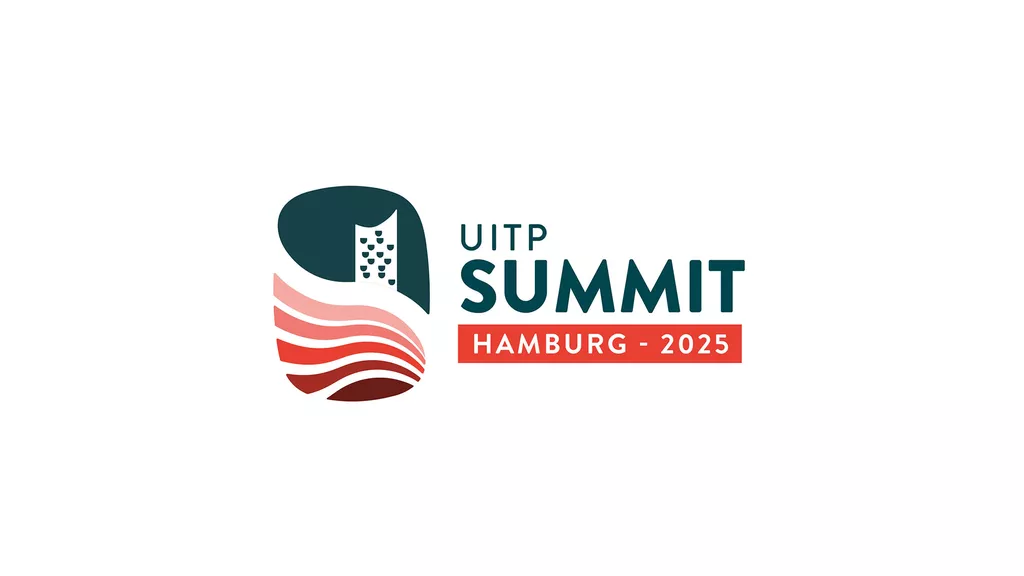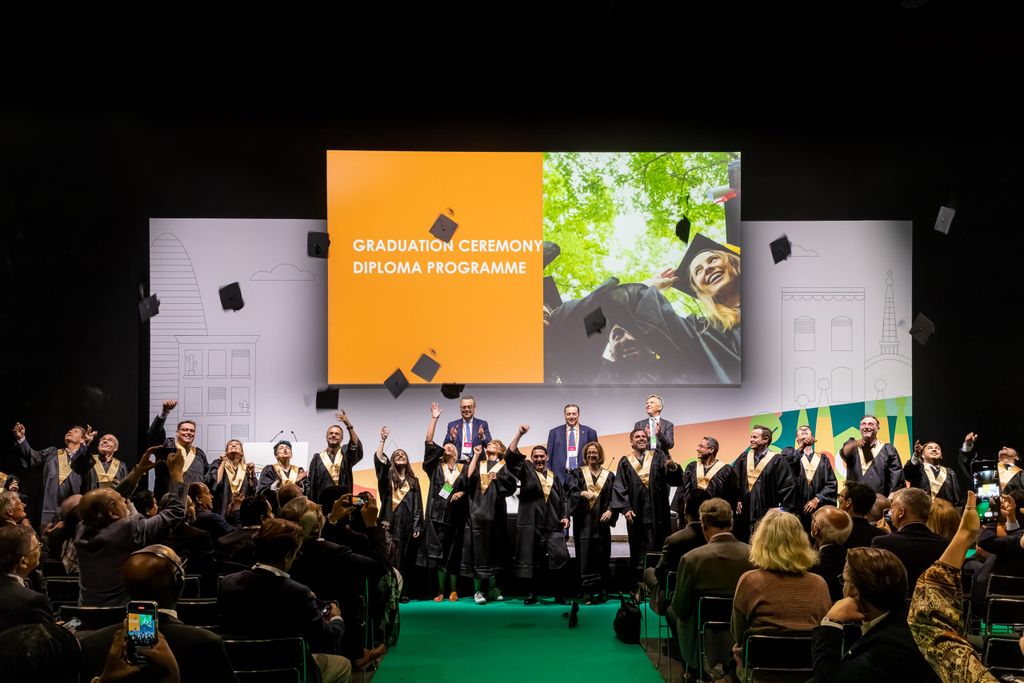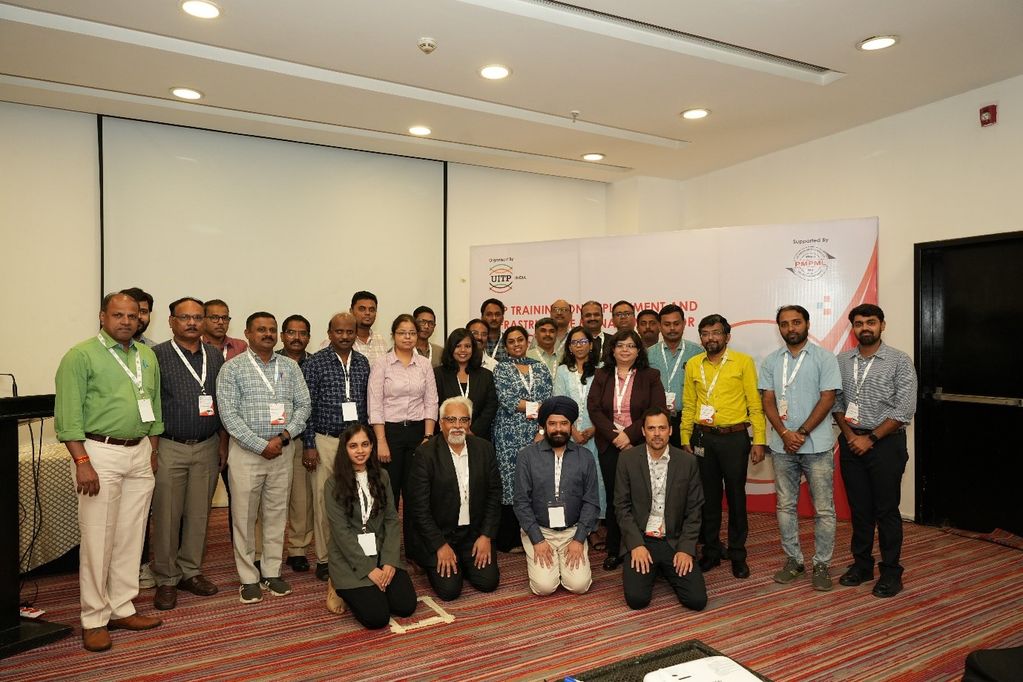
Advancing Electric Buses in India: Highlights from UITP India's Training on Deployment and Infrastructure Management
UITP India holds training programme in Pune
UITP India organised a two-day training programme on ‘Deployment and Infrastructure Management for Electric Buses’ with support from Pune Mahanagar Parivahan Mahamandal Limited (PMPML) on June 27-28, 2024, in Pune.
The training programme hosted 36 participants from 16 organisations, including eight public transport authorities from various parts of India. Seven international and national trainers provided immersive training on topics such as Charging Infrastructure and Optimisation, Data Monitoring and Performance Evaluation for E-Buses, Resilient and Safer E-Bus Ecosystems, and Asset Management for E-Buses.
A platform for knowledge sharing
UITP India organised this training programme as a capacity building initiative under its research project on ‘Advancing Electric Buses in India’. The training began with a welcome address by Ms Rupa Nandy, Head of UITP India, followed by an inaugural address by Mr Prashant Kolekar, Electric Engineer, PMPML. The training aimed not only to disseminate knowledge from domain experts but also to encourage the sharing of ideas. To achieve this, the sessions were designed to be highly interactive. The notable features of the training included capacity building through group activity and a technical visit to the Electric Bus Depot of PMPML at Baner, Pune.
Enhancing E-Bus Management: Insights and Best Practices from Global and Indian Trainers
Each technical session was followed by a session on best practices, where both international and Indian case studies were discussed. This gave the participants an overview of what could be done to enhance the efficiency of e-bus management in their respective cities in India.
Mr Josep Enric García Alemany, Public Transport Executive and Consultant, Moov Mobility Consulting, Spain led sessions on Charging Infrastructure and Optimisation, and Data collection for Performance Assessment and Strategy Development, showcasing international best practices. Mr Manpreet Singh Kapoor, GM – IT, Delhi Integrated Multi Modal Transit System Ltd. (DIMTS), highlighted Delhi’s strategy for Route and Schedule Optimisation with Charging Infrastructure. Mr Alok Jain, CEO and MD, Trans-Consult, Hong Kong shared his insights on Benefits and Strategies for Data Monitoring and Performance Evaluation for e-buses, citing best practices across the world that could be adopted by Indian cities. Ms Amruta Kulkarni, Technical Advisor – E-Mobility and Mr Jayant Deshmukh, Bus Operation Expert, GIZ India, led a crucial session on Resilient and Safer E-Bus Ecosystems. Mr Alok Jain and Mr Josep Enric García Alemany conducted the session on Asset Management and best global practices, while Mr Prashant Kolekar explained the case of Pune.
Ms Divyanka Dhok, Researcher, UITP India gave an overview of the ‘Advancing Electric Buses in India’ project and highlighted key takeaways from the research conducted so far. Day 1 concluded with a highly interactive group activity moderated by Ms Anindita Ghosh, Senior Researcher and Ms Kahini Ojha, Researcher, UITP India, alongside Ms Amruta Kulkarni and Mr Jayant Deshmukh from GIZ India. This activity allowed participants from different organisations to brainstorm on given scenarios and present the best solutions to the problem statements.
Hands-on experience on e-bus depot infrastructure management
The training programme concluded on Day 2 with a technical visit to PMPML’s e-bus depot at Baner, Pune. This depot spans 2.5 acres, has a load capacity of 4,500 KVA, and houses three DC chargers of 150-180 KW and 35 AC chargers of 80 KW each. The Baner depot operates 74 e-buses, conducting 783 daily trips. Mr Prashant Kolekar guided the participants through the depot’s layout, charging infrastructure, safety measures, maintenance protocols, and e-bus features, including dashboard reading and monitoring.
The two-day training concluded with positive feedback from participants, along with suggested topics recommended for upcoming training. The next Capacity Building Programme under the project on ‘Advancing Electric Buses in India’ will be conducted in first half of 2025.
Dive deeper with the detailed report covering key outcomes of each day. Download Training on Deployment and Infrastructure Management for Electric Buses at the link here.

